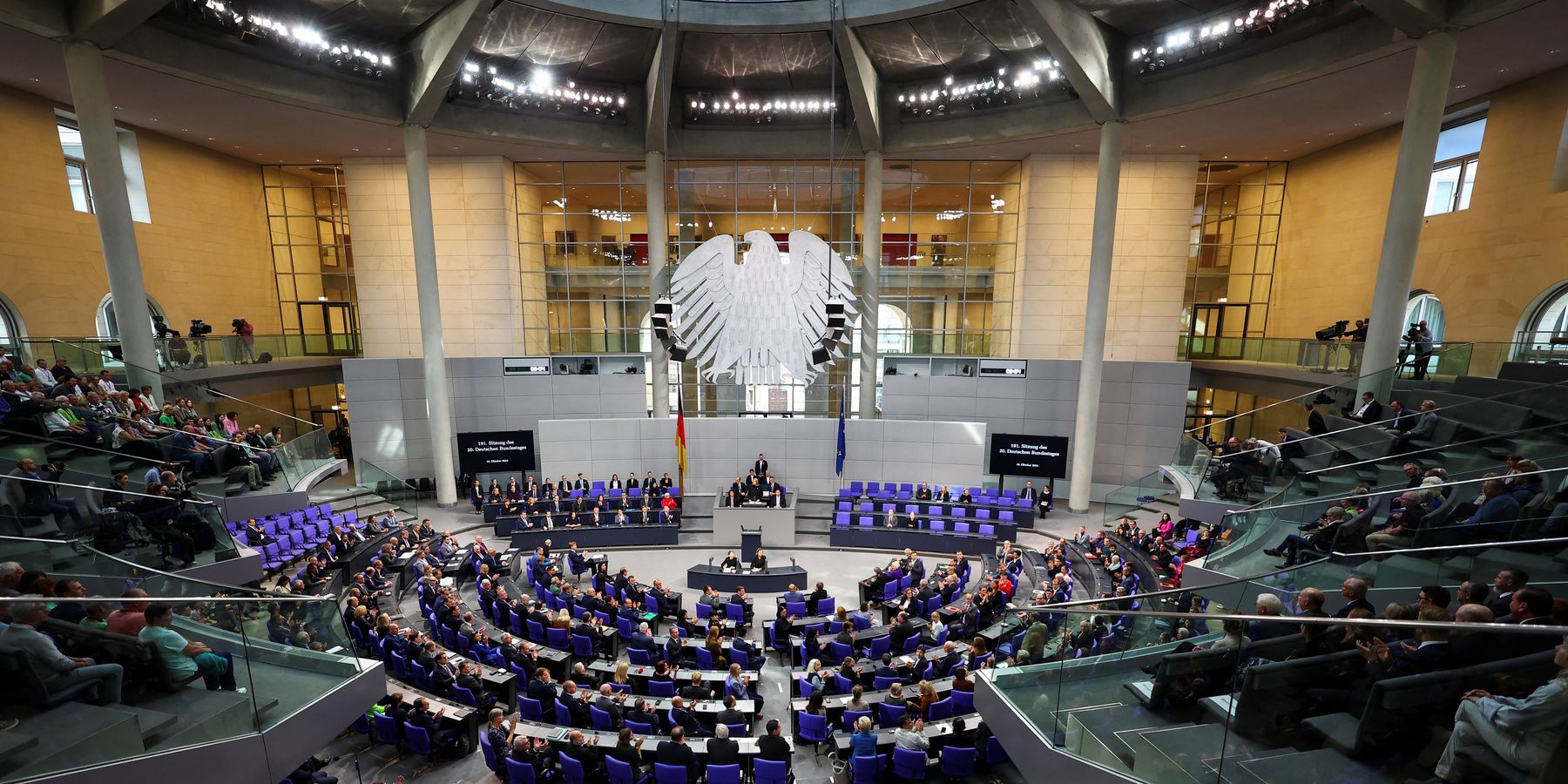Germany’s Bundestag has voted to pass a constitutional amendment that would authorize increases in defense, infrastructure, and some foreign aid spending, financed through increased borrowing.
"The decision we are taking today... can be nothing less than the first major step towards a new European defense community,” said likely incoming chancellor Friedrich Merz. EU Commission President Ursula von der Leyen commented that the vote “sends a very clear message to Europe that Germany is determined to invest massively in defense."
The vote comes amid pressure from the European Community (and the Trump administration) to increase its overall defense spending and begin to wean off military dependency on Washington. Over the last several weeks, Merz and France’s Emmanuel Macron have issued a clarion call regarding this and concerning Ukraine, where they have also pledged assistance in a new “coalition of the willing.”
Debt-averse Germany has had strict limits, currently only allowing for borrowing equal to .35% of its GDP. This new amendment cleared the two-thirds vote required in the Bundestag and would exempt any defense spending or foreign aid for countries “attacked in violation of international law” from borrowing restrictions.
In addition to loosening borrowing limits for defense spending and foreign aid, €500 billion will be earmarked for infrastructure borrowing, as stipulated by the Greens, whose votes were needed for the two-thirds majority.
"This historic breach of Germany's accustomed dread of incurring public debt is risky in terms of domestic politics," said university lecturer and research scholar Molly O'Neal, who is also a non-resident fellow at the Quincy Institute. "It was rushed through the outgoing parliament in order to frustrate the strong opposition of the AfD on the right and Die Linke on the left. These parties together will have a blocking minority in the new parliament. Viewed objectively and without panic, the relaxing of the debt brake allows Germany to meet the expectations of the U.S. and NATO on defense spending. The Germans are not likely to deploy peacekeepers in post-conflict Ukraine without a U.S. backstop guarantee."
The amendment is set for a vote in Germany’s second chamber, the Bundesrat, on Friday. At first, the outcome seemed uncertain as some regional governments voiced opposition to raising the debt limit. However, the head of Bavaria’s State Chancellery announced today that Bavaria’s six members in the Bundesrat would vote in favor of the amendment, ensuring that the measure will likely have enough votes to overcome the two-thirds majority requirement in that chamber.
- European militarism on steroids is not good, either ›
- What’s holding back German rearmament? It turns out, a lot ›
- German leaders miscalculated popular will for war spending | Responsible Statecraft ›
















